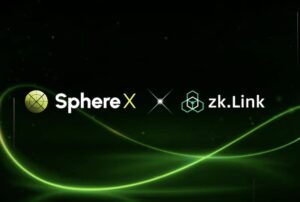
The city of Moscow is looking to evolve their Active Citizen polling network to log votes in upcoming elections. Thus making the election process transparent to all and tamper-free.
Active Citizens Decide for Themselves
As the white house continues to deny any allegations of collusion with Russian hackers and the FBI doggedly turns over more and more evidence of Russia’s influence on the 2016 elections the city of Moscow is making moves to make sure it can’t happen there.
Since 2014 the Russian city has had a program in place called Active Citizen. This program allows citizens to vote on big projects in order to eliminate corruption. So far citizens have cast their votes on the seat colors at the new Luzhinki stadium, whether or not to participate in a major housing renovation program and the official badges that doctors will wear in all the cities hospitals.
Blockchain Tech Can Help to Ensure Fair Election Polling
In 2017 the Active Citizen program was moved on to a Blockchain network where ideally the data can never be deleted or changed and the system cannot be hacked. Today it has added a private version of the Ethereum network to the existing architecture with a view towards implementing this into the city’s voting process.
In this way, city officials hope to soothe citizen’s fears of vote manipulation while showing the world’s governments that free and fair elections can be had in Russia.
“Of course, sometimes we hear that not all the votes are trusted,” said Andrey Belozerov, the strategy and innovations advisor to the city’s CIO;
“So, we decided to use a blockchain for the Active Citizen project, as a platform of electronic trust. The idea is to put all the votes to the blockchain to make it open so everybody can connect to our blockchain network, and to check the voting process, and so on and so-forth.”
Using blockchain technology to ensure that every vote is uniquely logged and that the process is absolutely transparent is a long way from the antiquated voting process still used in the United States.
Citizens of the US still vote using a system developed in the 19th century to make collecting and counting votes over the massive country feasible. Rules and regulations vary from state to state and in some case still rely on hundred-year-old machines.
As future elections will undoubtedly be influenced and tampered with by hackers both inside and out of the country a decentralized blockchain voting system not only makes sense but seems essential to maintaining a democracy in the digital era.
At the moment the Active Citizen system in Moscow has recorded 88 million votes on over 2,700 projects. With the implementation of blockchain for their next elections, there can be no dispute over results. The only hurdle left for fair and transparent election process will be resistance from government officials, not only in Moscow and the US but all over the world.







